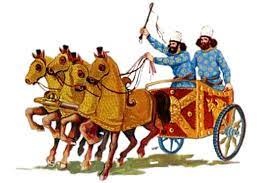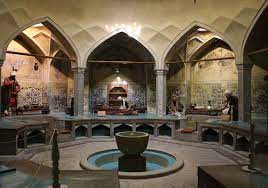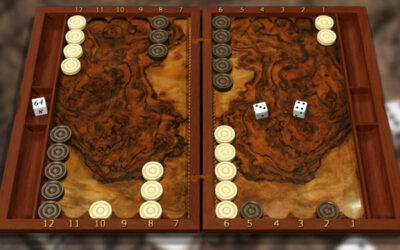
Chapar/ Postal System
Chapar Khaneh, the postal service, created by Cyrus the Great, 6th century BCE and later developed by Darius the Great, as the royal method of communication throughout the empire. Each “Chapar Khaneh” was a station mainly located along the Royal Road, a 2500 km ancient highway, which stretched from Sardis to Susa, connecting most of the major cities of the empire.

Shaykh Bahai hammam/bath
The Shaykh Bahai hammam is a historical public bath in Isfahan, Iran. In 1619, during Safavid reign. The people of Isfahan believed since the old times, that Shaykh Bahai built the stove of this hammam, so that it can be warmed by only one candle and under the cauldron of the stove. The most realistic heory about the fuel of the Garmkhaneh is that there was an underground ceramic piping system between the public toilet of the Jameh mosque and the hammam and probably gases like methane and sulfur oxides led to the torch of heated pool by the natural suction.

Back Gammon/ Nard/ Takhteh Nard
Ancient texts assign its invention to the Persian sage Wuzurgmihr (Persian) Buzarjumihr/Bozorgmehr, who was the minister of King Khosrow I Sassanid 6th century CE According to the historical legend, the Indian king Dewisarm sends his minister Taxritos to Persia with the game of chess, and a letter hallenging Sasanian King Khosrow I to solve the riddle or rationale for the game. Khosrow asks for three days to decipher the game, but initially no-one in the court is able to make any progress. On the third day, Khosrow’s minister, Wuzurgmihr, successfully rises and explains the logic of the game. As a reciprocal challenge, Wuzurgmihr constructs the game of backgammon and delivers it to the Indian king who is unable to decipher the game. The minister states: Chess is all about strategy; while nard/backgammon is about strategy and chance/luck – similar to real life!

